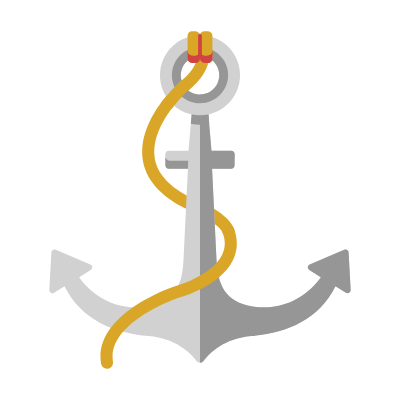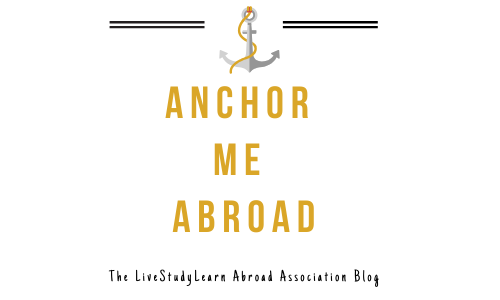
Study Abroad in a Post-COVID World: What Will It Look Like?
Since the start of the pandemic, those of us who work as study abroad advisors have all received the same questions from students: Will Study Abroad return and what will it look like when it does?
The optimist in me hoped that by late 2020, students would be buzzing around the streets in the likes of London, Paris, and New York, even if they had to take extra precautions. When that fizzled, I became more of a pragmatist and considered Spring 2021 as a more attainable goal. That too was a bit overly ambitious, keeping in mind all that had happened.
The tides on the discussion began to shift with a focus on study abroad for Spring 2021. Similar to colleges and universities around the globe, there’s a realistic and sobering view that education cannot be stalled or limited based on the virus alone.
The health and safety of students, instructors, and academic staff should be the top priority, however, it is imperative to find a way to navigate these uncertain times to ensure learning is not only fundamental but also beneficial for students. Providing meaningful and fruitful learning from behind a screen for nine months leaves little in the department of inspiration.
With this in mind, universities across the United States, United Kingdom, and the European Union, along with private programs worldwide began putting all the pieces of the planks in place to push forward with the re-introduction of study abroad programming for the Spring/Summer 2021 season, with the utmost caution of course.
Let’s be honest. In the interim, study abroad as we have known it is going to look much different. There will be more red tape, more hoops to jump through, and yes, proof of the “arm candy” is likely going to be necessary…..it’s a reality.
I want to also take this time to point out that in terms of vaccine proof, colleges, universities, and independent study abroad programs have been collecting this information for decades. While it is understandable that people would have concerns about the latest jab and there is a certain level of hesitancy to receive a shot that is ‘newer to market’ (I fully understand the nuance in these concerns across the board), we should be honest that the “outrage” over educational institutions asking for proof is ridiculous, overplayed, and clearly comes from people who have never stepped foot on campus.
This PART is NOTHING NEW….despite the fact that the vaccine is.
This data-driven fact played a major factor in many schools around the globe making the decision to move forward with in-person instruction this fall, with accessible testing options on campuses. The balance between providing a somewhat normal experience for students and keeping them safe is a necessary evil in these times.
Both can be (and ARE) true.
The Future of Study Abroad: What Will Happen?
So to answer the question at hand: the possibility of study abroad remerging in late 2021 and beyond is extremely high (because it’s already happening!), but will consist of many modifications (also already happening!). Here’s what a study abroad program may look like reimagined from pre-COVID times for the foreseeable future (see until at least early 2023):
1. Proof of Negative COVID-19 Testing Prior to Departure
This is going to be a critical and likely non-negotiable requirement for any study abroad program you apply to attend in the next year and a half, whether you are in a program connected to your own university or in an independent program.
The majority of programs that students I work with are completing their applications for at the moment have all stated that proof of a negative COVID test will be necessary to the issue of all travel documents and to enter any host country. Depending on the program you select, you may be asked to show up to three negative results over the course of a 21-day period (tested every 7 days for up to three weeks).
While there are three different types of COVID tests on the market, the most common is the polymerase chain reaction (PCR), referred to in slang terms as the ‘Brain Tickler’ or ‘Semi Brain Tickler’ which goes up your nose, but not as deep as the original PCR test. It is considered the most viable (granted there have been so many stories of false positives over the past six months), but it is widely used and recognized globally because it is used around the world.
Some programs may also consider taking antigen or antibody testing results in place of PCR, although these are not necessarily universally used outside of North America and the United Kingdom as proof that you have tested negative for COVID.
2. Ongoing COVID-19 Testing in Host Country
While the protocols are ever-changing and evolving, there may be requirements for programs with participants to undergo additional COVID testing once in their host country.
The reasoning behind this is not only to attempt to stop the spread of the virus but also aids in preventing wider outbreaks amongst groups, especially between students coming from countries with higher overall cases (ex: United States) but studying in countries with lower overall cases (ex: Germany). It is also important to note that these rules will likely be issued from local governments and not from your program provider, so it is going to be important to research COVID guidelines in the host country you plan to study in.
3. Limited Programming Abroad
One of the stipulations of study abroad in the era of COVID is to ensure a focus on minimizing interaction in large groups. In traditional times, study abroad programs may see anywhere from 75 – 200 participants in one semester, all traveling, studying together at one satellite campus, and interacting together.
Many universities and private programs are currently working on a way to create cohort models for study abroad, participants, for 2021 in most instances.
Through this model, all students would begin their program together online or on-campus and then students will be assigned a specific window of travel and stay abroad on-site in a host country with a smaller group of students that they will remain with during their time away. Again, all protocols are aimed at limiting crossover and aiding in speedy contract tracing if any students contract the virus while abroad, which is much easier to do if programs run at 20-30 percent capacity in comparison to full capacity.
4. Single-Roomed Living Spaces
If you study abroad in late 2021 or beyond, there is also a strong possibility that you may not have a roommate. With the exception of siblings or students that lived together prior to travel for their program, creating more boundaries and physical spaces between students in their housing options is another way to encourage less long-term crossover. It can also be effective in contact tracing as well.
5. Proof of you know…..THE THING!
I do not know who needs to hear this, but the likelihood of being able to study abroad without proof of the vaccine will decrease quicker than the pandemic itself began. NOW, let’s keep in mind that there are several factors that will still determine whether you’ll need to show proof, but options will be limited and will basically boil down to the following:
a. Your secondary/high school, college, or university has stated (preferably in writing) that they will not be requiring students to show any proof of vaccination.
b. The host country where you are planning to study abroad makes it optional for study abroad students to be vaccinated. While a college or a private program can still require it, there is a debate of whether or not the host country’s requirements can overrule the need to show it if it’s not widely mandated in said country.
c. In lieu of a vaccine, program participants will need to get tested weekly and agree to quarantine if a positive test is received and also opt-out of certain group activities that include vaccinated fellow cohorts
d. No vaccine, no entry. Either show proof of the vax or do not bother applying.
As I mentioned in the opening, educational institutions have been asking for vaccine records forever in a day, however, I do not judge students in this instance. It is understandable that a large swath of people have concerns and are not (or may never be ready to take it).
They SHOULD NOT be bullied or considered ‘conspiracy theorists’ and there should be more wiggle room (see option c) to give people options to still participate without feeling excluded.
Study Abroad Post-Covid: How Much Will It Cost?
Similar to the discussion last year about making the case of colleges and universities to lower costs to level off with hybrid-learning or online restrictions, study abroad costs will also be in the spotlight. Is there an ethical reason to charge traditional prices if part of the program is virtual? Do “international fees” need to be suspended if students cannot experience the campus and access all of its amenities?
The best advice I can give on this is to take the cost factor into consideration when comparing which Study Abroad program you select. While most programs are not likely to outright gouge families, it is worth taking a closer look at each line item you are being charged for to ensure it seems fair in comparison to what you will receive during your program. That is true regardless, but even more relevant during the age of COVID and modified programming.
Study Abroad After (less) COVID: How Do I Find a Program?
The first place to start is your school’s academic advising office (for students on larger campuses, you may have a dedicated study abroad office). Spend some time exploring their plans for 2021/2022/early 2023 and learning about these options.
CLICK HERE TO DOWNLOAD NOW!
If your uni is not planning to navigate the semester abroad waters any time soon, consider an Independent Organized Study Abroad organization such as the American Institute of Foreign Studies (AIFS), Cultural Experiences Abroad (CEA), or International Studies Abroad (ISA).
Are you and your parents searching for more personalized guidance on how to select a program, how to secure a visa, and how to navigate a study abroad program from departure to return? Join me for a 1:1 study abroad advising session – reserve your 30-minute introductory slot today!
Until next time…

Known as The Study Abroad Specialist, Kimber Grayson is a serial-study abroader turned International Education coach and expert. Since 2014, she has helped 100+ students navigate their semester away journey from the coastal areas of Spain to China and every place in between. In 2018, she launched The LiveStudyLearn™ Abroad Association, a one-of-a-kind online membership platform for study abroad students worldwide.
She holds two Master's degrees from two well-respected London-based universities and has experience working in the US, UK & and Italy.
In her spare time (what's that again?), she enjoys leisure travel city breaks, any snow-based activity, skeet shooting, and attempting to learn new languages.
- kimberhttps://www.anchormeabroad.com/author/kimber/
- kimberhttps://www.anchormeabroad.com/author/kimber/
- kimberhttps://www.anchormeabroad.com/author/kimber/
- kimberhttps://www.anchormeabroad.com/author/kimber/
kimber
Known as The Study Abroad Specialist, Kimber Grayson is a serial-study abroader turned International Education coach and expert. Since 2014, she has helped 100+ students navigate their semester away journey from the coastal areas of Spain to China and every place in between. In 2018, she launched The LiveStudyLearn™ Abroad Association, a one-of-a-kind online membership platform for study abroad students worldwide. She holds two Master's degrees from two well-respected London-based universities and has experience working in the US, UK & and Italy. In her spare time (what's that again?), she enjoys leisure travel city breaks, any snow-based activity, skeet shooting, and attempting to learn new languages.


You May Also Like

5 Must-Do Things To Complete BEFORE You Study Abroad
July 8, 2022
How To Make Money While You Study Abroad
August 24, 2022























